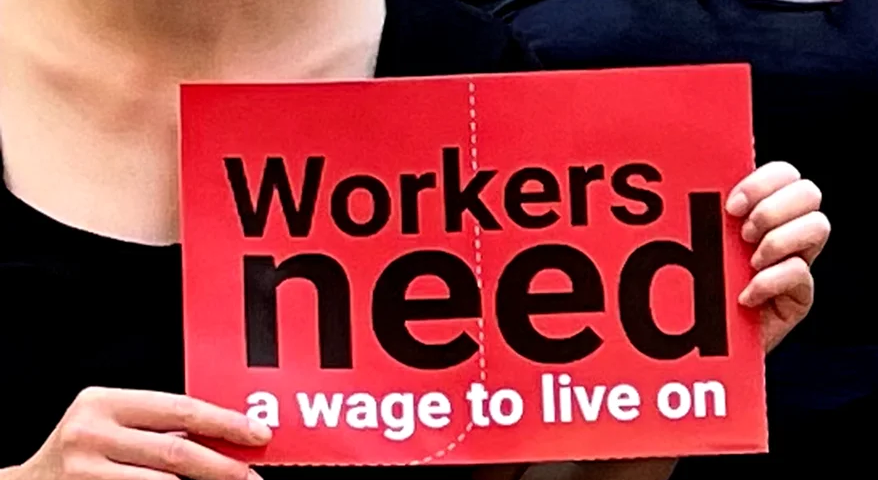Videodokumentation: Meeting the Clean Clothes Campaign network – Exchange and inspiration
+++ english below +++
Treffen mit dem Clean Clothes Campaign Netzwerk – Austausch und Inspiration: CCC-Vertreter*innen aus Deutschland besuchen Kolleg*innen in Ost- und Südosteuropa
Ungarn, Rumänien, Bulgarien, Nordmazedonien, Albanien, Serbien und Kroatien. In all diesen Ländern auf dem Balkan gibt es eine große und traditionsreiche Textilindustrie. Was viele Menschen nicht wissen, ist das auch hier die Arbeitsbedingungen, ähnlich wie in Bangladesch und Pakistan, menschenunwürdig sind.
Die internationale Nichtregierungsorganisation Clean Clothes Campaign hat sich zum Ziel gemacht, die Arbeitsrechte in der globalen Bekleidungsindustrie zu verbessern. So auch in Ost und Süd-Ost-Europa. Fünf Vertreterinnen der Kampagne für Saubere Kleidung Deutschland reisten im September 2021 in eben diese Länder und trafen vor Ort Beschäftigte in der Modeindustrie und Gewerkschafter*innen, sowie weitere lokale Aktivist*innen und sprachen mit ihnen über ihre Arbeit vor Ort, die Zusammenarbeit innerhalb der Clean Clothes Campaign und wie die Arbeitsbedingungen in der Modeproduktion verbessert werden können.
Meeting the Clean Clothes Campaign network – Exchange and inspiration from Entwicklungspolitisches Netzwerk on Vimeo.
Meeting the Clean Clothes Campaign network – Exchange and inspiration: CCC representatives from Germany visit colleagues in Mideast and Southeast Europe
Hungary, Romania, Bulgaria, North Macedonia, Albania, Serbia and Croatia. In all these countries there is a large and traditional textile industry. What many people do not know is that the working conditions here are also inhumane, similar to Bangladesh and Pakistan.
The international human rights initiative „Clean Clothes Campaign“, CCC for short, aims to improve working conditions in the global fashion industry. It is also active in Eastern and South-Eastern Europe. In September 2021 seven representatives of the German Clean Clothes Campaign traveled to these countries. They exchanged with Clean Clothes Campaign representatives there.
The local partners of the Clean Clothes Campaign arranged meetings with workers in the fashion industry, trade unionists and other local allies. The activists met with journalists, politicians, social workers and factory managers.
They talked about their respective education and advocacy work. Main topics were living wages and the responsibility of fashion brands along their supply chains. In particular, the travelers from Germany were interested in the impact of pandemic-related order cancellations on conditions in the garment industry. In addition, the just adopted German Supply Chain Act and its opportunities played a major role in the discussions. The question was how the supply chain law can help enforcing workers‘ rights. Bild und Text: Kampagne für Saubere Kleidung e.V.
